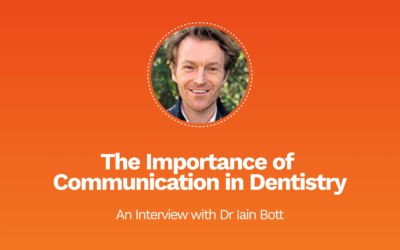The one thing that we can all agree on is that dentistry is very difficult. Many patients provide considerable challenges.
Not only are there all the practical difficulties to overcome, but even the most skilled dentist may experience complaints about his or her work and may even receive a claim during their practising lifetime.
With care, good documentation, not practising outside the scope of skills and complying with standards and guidelines, the risks of being the subject of a complaint or a claim are low.
However, up to 30% of complaints do not involve clinical skill, compliance with standards or the production of good records. They concern attitude.
Judgement call
Defence organisations regularly see complaints where it is not the dentist’s clinical abilities that are criticised but his or her attitude. Commonly, the allegations are that the dentist was rude, abrupt, unhelpful, aggressive or uncommunicative.
In such circumstances, there are a number of consequences resulting in the consultation going from bad to worse.
It is recognised that, when a dentist sees a new patient, the patient quickly makes a judgement about how pleasant and likeable the dentist actually is. The judgement is often based, not on any aspect of the clinical work, but solely on demeanour and attitude.
Patients make the assessment almost within seconds. And yet it may influence the whole relationship with the clinician.
Once the dentist has set off on the wrong foot with the patient, it is very difficult to rescue the situation.
When meeting a patient (particularly a new patient), to try to ensure that the relationship is established or maintained in a harmonious and cordial way, the dentist should:
- Consider standing up when the patient walks into the surgery
- Greet the person cheerily, by name, and smile (mask permitting)
- Introduce yourself if you have not met the patient before
- Invite the patient to sit in the chair, unless the nurse has already invited the patient
- Perhaps a few seconds of general conversation may help put the patient at ease.
A good explanation
Successful consultations depend on explaining to the patients the events as they occur. And by ensuring that the individual clearly understands what findings the dentist makes and what treatment proposals they suggest.
Consent is not valid if the patient does not receive an explanation of all the options for care, benefits and disadvantages, alternatives, consequences of having no treatment and the costs involved.
Patients almost invariably also feel safer and happier if they understand what the proposition involves. As well as the choices before them. The opportunity to ask questions about suggested options helps the patient feel involved in the care.
Remember too that it is important you document options, risks, and complications in case of dispute later. Remember the old aphorism, ‘no notes, no defence’.
You can be sure to have some difficult consultations and unhappy or aggrieved patients if the dentist:
- Believes they are always right
- Does not believe it necessary to explain options, risks etc
- Does not see the need to offer reassurances and encouragement.



